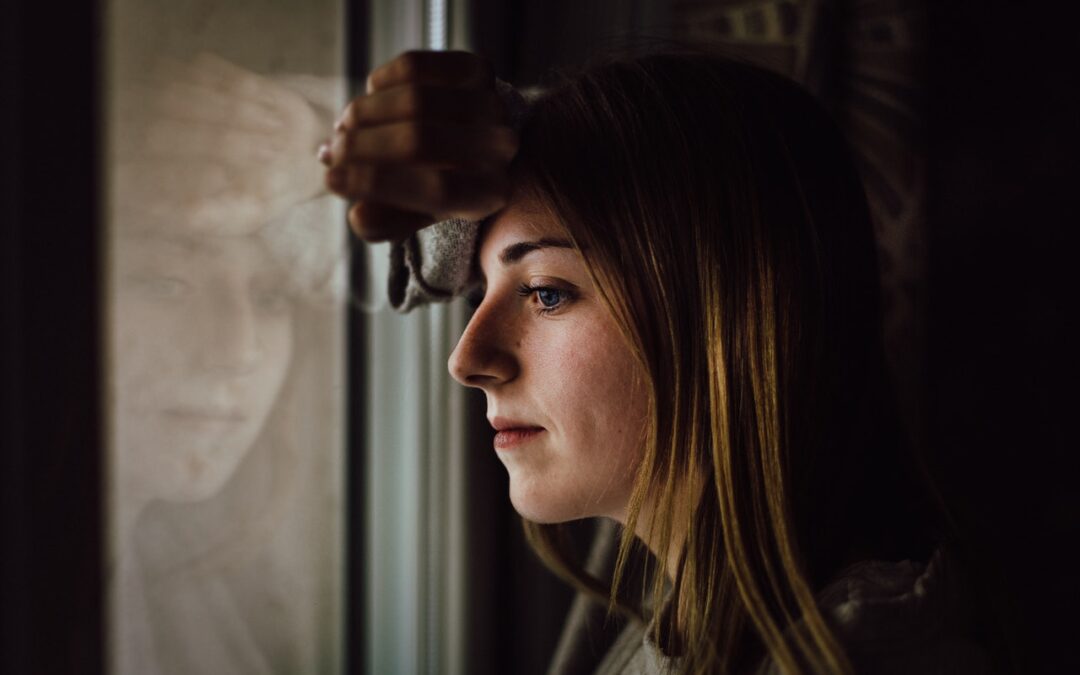Guilt is a powerful emotion.
For me, it’s a combination of various feelings: sadness, regret, embarrassment, shame, incompetence, failure. The list goes on. No matter what feelings go into forming it, the result is always the same: blame. Whether we deserve it or not, guilt sets in when we blame ourselves for something we think we did wrong or wish we could have done better.
For many who have lost someone dear to them, guilt often creeps in almost immediately.
We feel guilty when we didn’t say everything we should have or didn’t spend enough time with them while they were here. In situations where we make choices for their care or medical treatment, we guiltily question whether we made the choice they would have wanted. Some feel guilty that they didn’t fight hard enough to keep them alive. Others blame themselves for not seeing the warning signs early enough.
In some situations, guilt after a loss is more complicated and often unwarranted. The loss of a child often brings misplaced guilt. Parents feel a responsibility for taking care of and protecting their children. Even when their children are grown.
I’ve heard bereaved parents blame themselves for just about any type of death at any age.
A parent whose young child died of cancer blamed themselves for not seeing the symptoms soon enough. They even felt guilty for passing along the gene that caused the cancer.
A college-age child died in a spring break car crash when his friend fell asleep at the wheel. His father blamed himself for not stopping his son from going on vacation in the first place.
The parent of an adult addicted to drugs blamed themselves for not doing enough to help their child overcome their addiction. As if it were in their power to do so.
The stories go on and on.
In some cases, guilt is expected (and some may even believe deserved). These are the “preventable” deaths.
My daughter’s death was one of these preventable deaths; she drowned. Not only did she drown, she drowned in our backyard pool while we were at home.
It is still hard for me to say that. I spent hours pouring over every detail of what happened that day. I could tell you until I am blue in the face that her death was a complete accident. Had I known what was going to happen, I would have gladly traded my life for hers.
But the fact is that many who hear that a four-year-old girl was near an uncovered pool alone – no matter for how short a time – will lay blame upon me for not being with her or taking steps to prevent it. And I cannot argue with them.
My deep guilt magnified the despair I felt after she died.
It made me feel like a complete failure as a mother, and even as a human being. Feelings of guilt led me to thoughts of suicide, which I thankfully never came close to acting on.
I was ashamed to tell anyone how she died and chose my words carefully to avoid having to disclose the reason. Saying, “She passed away” or “We lost our daughter,” seemed the most acceptable description. “She died,” or, “She died in a tragic accident,” were the most likely to lead to the dreaded response, “Oh I’m sorry. May I ask how?”
I spent years in counseling and support groups working through my grief and guilt. They told me over and over that it was a terrible, tragic accident and that I shouldn’t feel guilty. I’ve heard all the reasons why it was an accident, and how it could have happened to anyone. And often does. The sad fact is that drowning is the leading cause of death for children under the age of five. I listened and nodded in understanding.
But deep down, the guilt remained.
While I cannot say that my guilt over my daughter’s death is completely gone, it has loosened its grip.
Why? I think it all comes down to choice and perspective.
I read an article describing how humans have an inherent tendency to focus on the negative. Born out of primal survival skills, when we are aware of the danger around us we are better prepared to run from it. As a result, we’re often unconsciously looking at the downside to every situation and anticipating the next potential threat.
The problem arises when tendencies turn into habits. Then long-term habits begin to shape our reality without us even realizing it. But when you hit the proverbial “rock bottom” – in my case, the death of my daughter – and survive it, one of the only ways to go is up.
“Up” for me has been slowly learning a new perspective on life using the lessons I’ve learned the hard way. I began learning how to embrace life and live it to the fullest. I’m continually trying to work on replacing tendencies of negative thinking with conscious choices based on love, truth, compassion, and joy. I’m slowly learning how to stop worrying over the past and future, and focus on what I can control here and now. It has not been easy to try to overcome lifelong habits, but it has been rewarding.
To combat the grief and guilt, I chose to focus less on the circumstances of her death and more on her and how she lived.
I’ve chosen to remember how vibrant, confident, adventurous, and loving she was. I know these qualities are testament not just to her inherent personality, but to the loving, supportive environment we provided for her.
I’ve chosen to acknowledge that it’s unrealistic to think we can keep an eye on our children 24 hours a day. I recognize that for the most part our children DO stay safe; but accidents can happen. I’m confident that I remain, and always have been, a loving mother who adores her children and provides a nurturing environment for them. And I can happily say that I know how much my children love and adore me.
Whether my guilt will ever completely go away remains to be seen.
Until then, I’m going to keep chipping away at it by sharing the unending love I have for my daughter with the world as my witness.






 There is a time in everyone’s life when everything seems to come together like the pieces of a puzzle. We have to share the gift of our faith and of God’s love, and demonstrate how God even shows it physically to us. In my case, it is a rock – a simple rock picked up off the ground and handed to me by my child. Big Deal? How many times do our kids give us rocks, leaves, bugs?? How many times have you missed the message God sent to you through a child? I know I have several times, I wasn’t always watching, or listening close enough.
There is a time in everyone’s life when everything seems to come together like the pieces of a puzzle. We have to share the gift of our faith and of God’s love, and demonstrate how God even shows it physically to us. In my case, it is a rock – a simple rock picked up off the ground and handed to me by my child. Big Deal? How many times do our kids give us rocks, leaves, bugs?? How many times have you missed the message God sent to you through a child? I know I have several times, I wasn’t always watching, or listening close enough.
 This website was inspired by the memory of Margareta Sol Kubitz in hopes of helping others work through the pain of grief.
This website was inspired by the memory of Margareta Sol Kubitz in hopes of helping others work through the pain of grief.